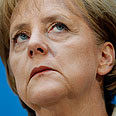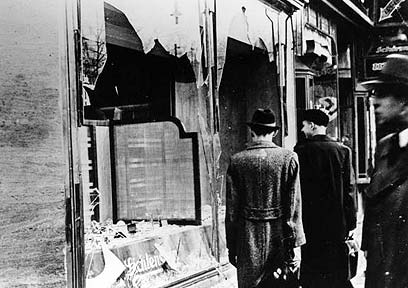
The Kristallnacht pogrom, also known as the Night of Broken Glass, saw Nazi thugs plunder Jewish businesses throughout Germany, torch about 300 synagogues and round up some 30,000 Jewish men for deportation to concentration camps.
Chancellor Angela Merkel called November 9, 1938 a "day of shame".
"Germans hunted Germans because they were Jews," she told a conference in Berlin.
"This insanity culminated in an unprecedented crime, it ravaged the continent and it cost the lives of millions around the world. When we talk here and today about the future, we do it thinking about the victims of this insanity that broke out in our country, in Germany."

Damage caused by pogrom (Photo: Getty Images)
Some 90 Jews were killed in the Kristallnacht orgy of violence, the pretext for which was the murder of German diplomat Ernst vom Rath in Paris by a student, Herschel Grynspan, who sought revenge for the expulsion of his family from Germany with about 15,000 other Polish Jews.
Throughout the country Wednesday, commemorations took place at Jewish community centers and the sites of former synagogues.
In the western city of Speyer, famous for a majestic Roman Catholic cathedral, a new synagogue was inaugurated later Wednesday in the presence of German President Christian Wulff as a symbol of the rebirth of Jewish life in the country.
Wulff said the new synagogue carried the promise of a "new and permanent presence of Jewish life" in the city, whose old synagogue was burned down in the pogrom. He added that Wednesday was "a day of confidence and hope" as well as remembrance.
Before 1933, Germany had one of Europe's strongest Jewish communities with more than 530,000 members.
Since 1989, when there were about 30,000 Jews living in Germany, some 220,000 more have arrived from the former Soviet Union after Berlin made it easier for them to obtain citizenship.
In the early 1990s, more Jews were immigrating to Germany than to Israel.
The Associated Press contributed to this report
- Follow Ynetnews on Facebook















